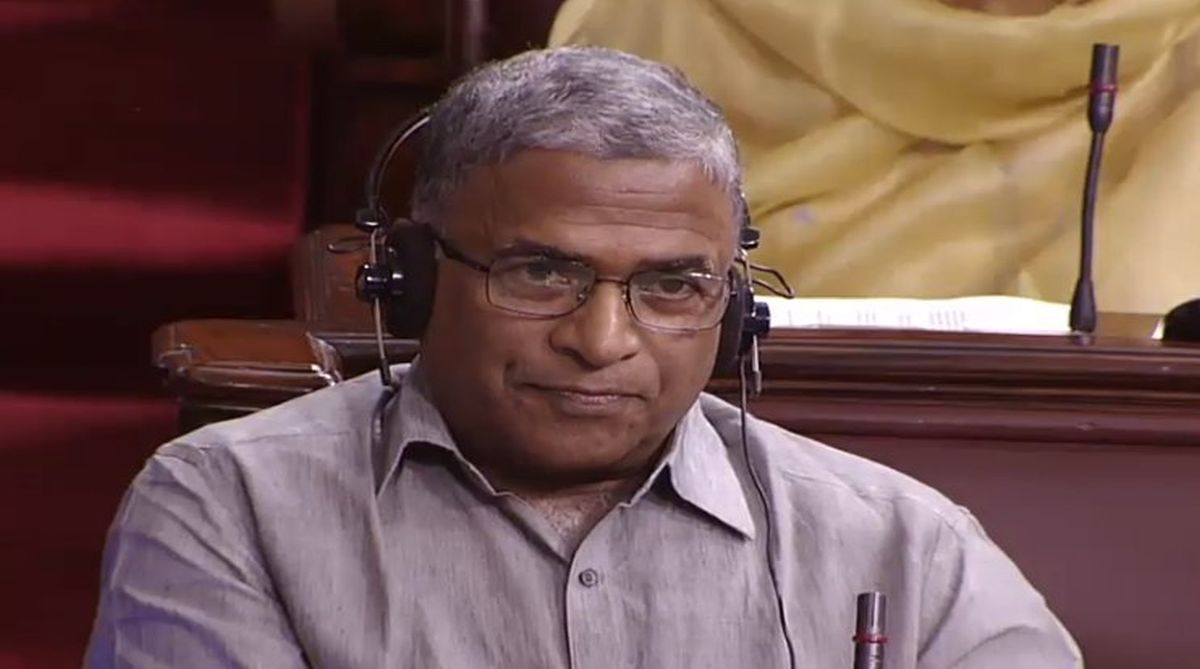Nadda, 5 others take oath as RS members
Five others who also took oath as members of the Rajya Sabha today are Ashokrao Shankarrao Chavan, Chunnilal Garasiya, Anil Kumar Yadav Mandadi, Sushmita Dev and Mohammad Nadimul Haque.

Photo:@harivansh1956
The Rajya Sabha Deputy chairman elections this week made some quick political points. What should have been an easy win for the opposition with numbers on its side has not happened because of its complacency while the BJP led NDA sailed through despite all odds. The NDA nominee, Harivansh of the JD (U) won 125 votes to the Congress nominee Hari Prasad’s 105 votes, a complete reversal of strengths. To overcome a 20-vote difference is indeed a great achievement of the BJP when it had only 90 votes, 32 less than the half way mark.
First of all, the results show an ascendency of the regional parties in the Upper House, although allies had held the post of Speaker and Deputy Speaker earlier. A post which had been held by the Congress all along except once has gone to a regional party for the first time in 40 years.
Secondly and more importantly, the BJP has mastered the art of manipulative politics. The BJP has upstaged the Congress by fielding a JD (U) candidate thereby getting not only the votes of regional parties like the BJD and TRS but also assuaged feelings of ally JD (U) which has been feeling neglected by big brother BJP. Using Bihar chief minister Nitish Kumar to talk to his Odisha counterpart Naveen Patnaik was indeed a good move. Significantly, the BJP has emerged as number two in state politics of both Odisha and Telengana, while the Congress has been relegated to number three. Despite this, regional satraps like Patnaik (Odisha) and K. Chandrashekhara Rao chose to go with the BJP arguing that they could not vote for a Congress nominee. This also shows the anti-Congress mind set of these parties although the BJP has overtaken the Congress to become the largest party in the country.
Advertisement
Thirdly, the Congress has proved that it lacks its political primacy even among opposition parties and could not prove its leadership qualities. The Congress also did not have the political shrewdness to tactically allow a regional party to take precedence.
Fourthly and more importantly, the BJP has emerged stronger by this victory, the second after winning the no-confidence vote last month. Both times it was able to expose the chinks in the armour of the opposition, which has not been able to keep up the united face shown at the swearing-in ceremony of Karnataka chief minister H.D. Kumaraswamy some weeks ago. The attitude of give and take, which Rahul adopted while supporting the JD (S) to keep the BJP away from power in Karnataka, has disappeared this time. On the other hand Prime Minister Narenda Modi had personally called Patnaik and Rao to mobilise the numbers. Modi seems to have adopted a two- pronged strategy. The first was to keep the NDA flock together as even the Shiv Sena, which had been flexing muscle fell in line by voting for the BJP-sponsored candidate. The second was to get new friends.
Fifthly, the Congress seems to have lost the touch for which it was known during the days of Indira Gandhi, who believed in stooping to conquer. The party failed to get even the votes of the AAP, a sworn enemy of the BJP, as Rahul Gandhi did not reach out to them. A phone call to Arvind Kejriwal would have got an additional three votes for the Congress nominee. Rahul seems to have gone by the advice of the Delhi Pradesh Congress President Ajay Maken, ignoring the larger goal of opposition unity.
Finally though the opposition was able to keep its flock together by and large it largely failed to make new friends. The BJP after all came to power with just 31 per cent of the vote share. The opposition can succeed only when it makes sure that at least half of the balance 69 per cent votes are mobilised.
The question is will the Congress and the opposition learn their lesson or will they continue to remain divided? The egos of the leaders of various opposition leaders seem to be a big hurdle in forging unity. Moreover, lack of initiative and of a unity of purpose on the part of the opposition leaders is also an important reason. Prime Minister Modi is banking on a divided opposition to come back to power.
Perhaps it is too soon to write off the unity moves of the opposition as they might still forge some kind of understanding nearer the Lok Sabha polls if it becomes a question of their own survival. Whoever thought of the SP and the BSP coming together in UP? There are about eight months to go before the 2019 polls. A week is said to be long in politics and eight months is really long. However, it is certain that they cannot agree on an opposition prime ministerial face to challenge Modi, as they believe that this should be decided only after the polls.
Advertisement